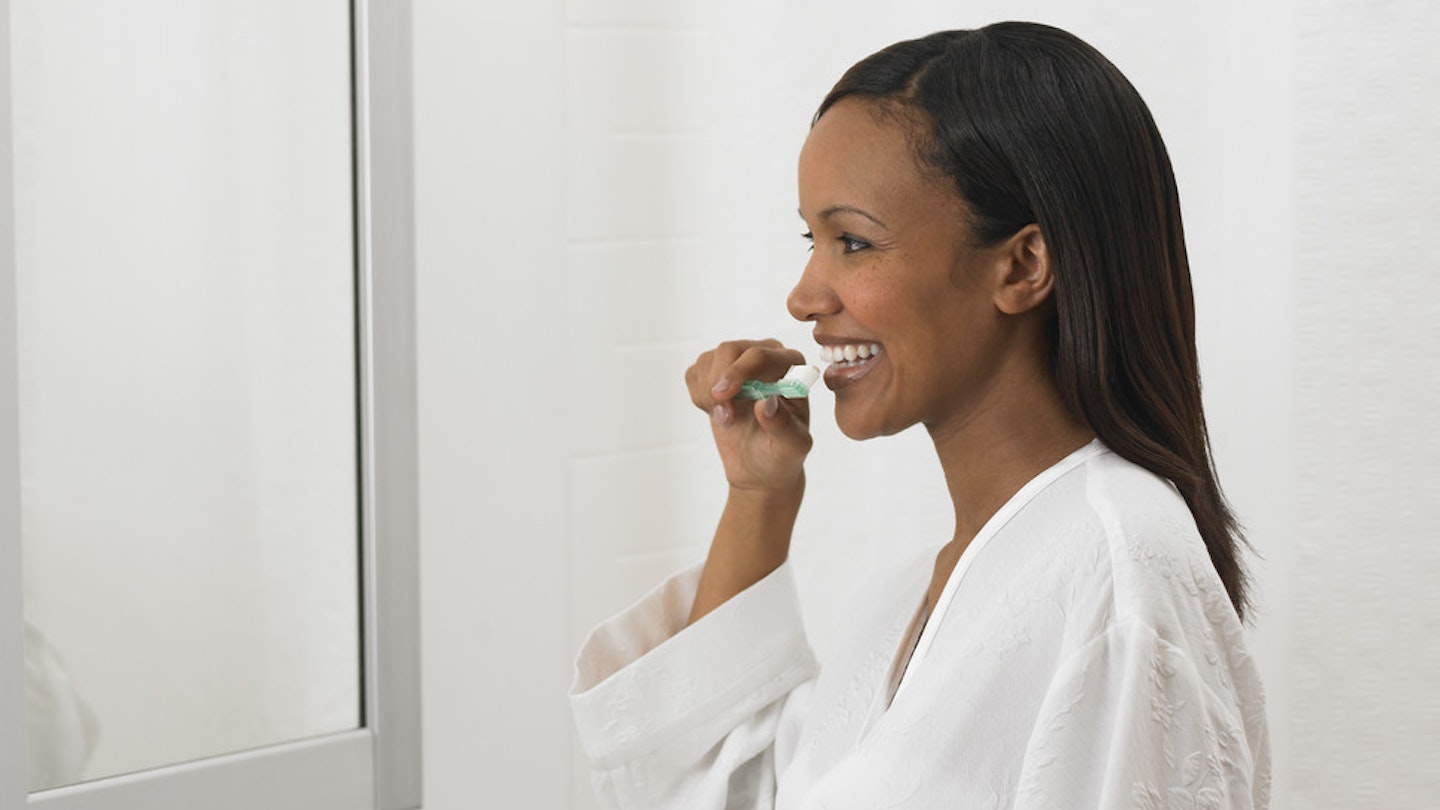If your gums have started bleeding now you’re pregnant, you’re not alone. In fact, around 50% of mums-to-be experience it.
Bleeding gums are a common complaint in pregnancy and – in part – it’s down to those pesky hormones. It’s nothing to worry about, but try to take extra care of your teeth and gums even after you have your baby.
Is bleeding gums a side effect of pregnancy?
"Pregnancy changes your body and that includes your gums too!" says Periodontist Dr Reena Wadia, "This means you are more at risk of gum disease and may experience signs of this such as bleeding gums. These signs should not be ignored, as gum disease treatment is safe, effective and important during pregnancy."
"Pregnant women should be aware that dental X-rays can be undertaken and local anaesthesia can be delivered without additional risk either to the mother or the foetus. In fact, the risks of no treatment are much higher. Even without any of the symptoms, if you’re pregnant, it’s always a good idea to get a gum screen and take the necessary precautions to prevent gum disease.”
Dental care is free on the NHS throughout your pregnancy and for one year after birth
How you can treat bleeding gums in pregnancy?
Visit your dentist regularly during your pregnancy to sort out any issues. A dentist will refer you to the hygienist who will show you, step-by-step, how to clean your teeth effectively. It’s actually not a one-method-fits-all approach, and you need to work out how to keep your teeth clean.
A pregnancy bonus? Dental care is free on the NHS throughout your pregnancy and for one year after birth.
How to prevent bleeding gums in pregnancy
The best way to avoid any dental problems during your pregnancy is to be vigilant in keeping your teeth and gums healthy.
‘Most people don’t clean their teeth very effectively, and pregnant women are much more susceptible to the problems that arise from that,’ says Dr Toby Talbot, director of the Talbot Clinic in Bath and gum disease specialist. ‘It’s not a question of brushing your teeth, but cleaning them properly.’
Brush and floss at least twice a day. ‘A quick once-over with the toothbrush is not enough for a proper clean,’ says Toby.
Spend at least two minutes brushing, then gently clean between every one of your teeth with floss or small dental brushes.
How to eat for healthier gums in pregnancy
Avoid sugary food and drinks, especially in between meals. Also, herbal teas and acidic foods like tomatoes, lemons and even white bread can wreck your teeth.
Brushing after meals is a good bet, just to be on the safe side. Finally, keep your diet healthy with lots of fruit and vegetables – preferably fresh and raw.
Vitamin C – which you can get in a supplement or foods including oranges, broccoli and bell peppers – may also help reduce bleeding.
Top tips mums-to-be can do at home
-
Make interdental brushing part of your everyday routine. Standard brushing alone only cleans 60% of the tooth’s surface including the front, back and biting area of the tooth. Leaving the remaining 40% untouched can cause a build-up of bacteria, plaque and food debris between teeth which can lead to gum disease, bad breath and tooth decay. Interdental brushes clean between teeth and below the gum line to help combat bad oral health.
-
Make sure you choose the right size interdental brush for your teeth in order to brush your teeth effectively. Everyone’s teeth are different; interdental brushes are available in different sizes, to fit a variety gaps between teeth with each brush size colour-coded for easy identification, so choose a size to suit you.
-
Use floss. Flossing is an important part of removing debris from between teeth.
Do you have any brilliant tips on treating bleeding gums during pregnancy? Let us know on Facebookor Twitter!
TePe produces a range of interdental brushes, in a variety of sizes, for daily care (brushes start from RRP £3-£3.50); classic triangular wooden dental sticks, great for after meals, that are adapted to the natural triangular interdental space; and the TePe Mini Flosser, a pre-loaded dental floss holder, great if you find regular floss hard to use.
